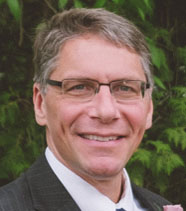
John Macari,MS, LLP
John Macari earned his Bachelor of Arts degree in psychology at the Franciscan University of Steubenville, OH in 1985 and a Master of Science in clinical psychology at Eastern Michigan University in 1988. He has practiced psychology as both a direct services provider and as manager of mental health programs in the Michigan prison system for close to 30 years. He has worked in the male and female prison systems providing a wide range of individual and group therapeutic interventions. He has developed and conducted a variety of group therapy modules in areas of anger management, stress management, trauma recovery, grief and loss, existential/life-purpose therapy, addiction recovery, cognitive skills development and managing emotions.
John has also provided individual, couple and family therapy in the community since the early 1990s and as of August 2018 is providing this service full time.
In addition to his clinical work, John has provided professional training seminars in areas of managing disruptive behaviors, maintaining professional boundaries, cultural diversity, crisis management and traumatic incident debriefing. He has also assisted with weekend seminars in marriage enrichment and growth in the spiritual life.
Please visit my website at:Excerpts from an Interview
Q. Mr. Macari, how do you find meaning in your work as a psychologist?
A. Meaning in my work as a psychologist has evolved from the earliest years of my own development. I have found that the most effective psychologists are ones who began their "study into the nature of the human personality and behavior" long before the degrees were achieved and licenses were issued. I was raised in a large family, 4th of 6 children, where my natural tendency to observe others' behaviors and ponder motivation and intention was fostered quite readily. The strong and sometimes intense dynamics of my family first piqued my interest in the causes and effects of human behaviors, especially during adolescence when my search for and development of identity was realized in many challenging ways. The intriguing nature of my own family of origin helped me develop a view of myself and others which realizes that personal conflicts for which professional counseling is sought seldom occur in a vacuum, but typically stem from a complex dynamic of inter- and intra-personal issues for which an objective observer or "advisor" is warranted.
As a psychologist playing the role of "objective observer," I value the individual while recognizing that we are all part of something much larger than any one person - i.e., the family, community, team or group to which we belong and for which we are challenged to support, defend and build. Being a psychologist is being there for others in a manner that most effectively brings about positive change and transformation; a mission for which I have great passion and by which I am greatly inspired.
Q. Where do you find the strength to deal with other people's pain and suffering you encounter daily?
A. I believe other people's pain and suffering is everyone's pain and suffering, including my own. One of the most powerful, healing forces in being human is our capacity for compassion; that is to "suffer with" each other. In effective, goal-directed and client-centered therapy, especially group therapy, we exercise this capacity in the "here and now"; identifying with each other in empathic care and concern. Gaining insight into others' struggles gives us a perspective on our own struggles in a way that no other human interaction can. Over the years I have found that therapy is not as much about a person "going to the doctor to get better" as it is about an interaction of two individuals in the journey toward wholeness.
The strength to "deal with other people's pain and suffering", then, derives from a perspective in which we are in this together; I playing a distinct and essential role as therapist / counselor and the client playing an equally vital role in the process of resolving the issues for which he/she seeks counseling.
Q. How do you integrate the science of psychology with Christian values as a therapist at the Family Counseling Center?
A. I believe the goals of psychology and the values established and practiced by my Christian faith are not only complementary, but can be perceived as one and the same. Self-sacrifice for a higher goal, sincerity, honesty, integrity, building self-confidence, self-awareness, testing of one's beliefs, taking personal responsibility for one's actions, seeking the betterment of self and others, gaining insight into the motives of my behavior, increasing empathy for others and related goals are designed to assist us in our journey toward the purpose for which we all can strive - to live more fully and abundantly. My Christian faith is central to my life; at the core of all that directs my decisions, goals and plans in life. This reality informs, supports and confirms my clinical practice in such a way as to ensure quality care, recognition of the intrinsic value of each person and provision of responsible advice on how to resolve the conflicts each client brings to the counseling process.
Q. What do you say to clients who are not Christian who seek services from you?
While I live by the convictions and freedom derived by my Christian faith, individuals who seek to heal, recover, resolve conflicts and gain insight into themselves and enrich their lives through counseling do not have to espouse the same theological beliefs as I. The principles and values by which I live and carry out my mission as a psychologist are universal principles which can be appropriately applied to all areas of life regardless of a person's faith tradition. That being said, the benefits that can be derived from a client's application of their faith and spirituality to recovery cannot be overstated.
Family Counseling Center
2301 Platt Rd. Suite 10
Ann Arbor, MI 48104
